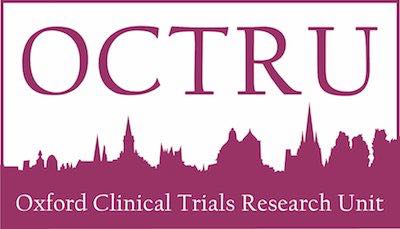Trial Summary
Anterior Cruciate Ligament rupture (ACL) is common but the resulting disability can be variable, some patients, once recovered from initial injury, are able to function well without their ACL, usually after undergoing some formal rehabilitation whilst others are not and continue to have episodes of knee instability/giving way affecting day to day activities, work and recreation; and it is thought surgery (ACL reconstruction using a graft) is necessary to stabilise the knee in these patients. Furthermore some surgeons feel that patients should always undergo surgery, and as soon as possible after being diagnosed. Conversely some surgeons feel that a period of rehabilitation (exercises) should always be prescribed as it may be possible to avoid an operation altogether. Indeed, recent work in Scandinavia has shown (albeit in more recently injured patients than would be seen in the NHS) that a period of rehabilitation can reduce the number of surgical reconstructions by 50% without compromising outcome.
Overall, the picture of management for the non-acute ACL deficient knee is confusing with limited and conflicting evidence for efficacy. In addition, the costs to the health service are not insubstantial. The benefits for either management approach are uncertain and therefore a new study is required to discover the best treatment option. We propose to carry out a randomised controlled trial with the following aim:
To determine, in patients with non-acute (greater than 4 months since injury) Anterior Cruciate Ligament Deficiency (ACLD), whether non-surgical management [Rehabilitation] (with the option for later ACL reconstruction if required) is more clinically and cost effective than a strategy of surgical management [ACL reconstruction].
Criteria
- Inclusion criteria
- Participants must have more than 18 years old.
- Symptomatic ACL deficient knee.
- Confirmed by clinical assessment and MRI scan
- Exclusion criteria
- Less than 4 months since injury
- Previous surgery to study knee (except diagnostic arthroscopy)
- Concomitant severe injury to contra-lateral knee
- Meniscal pathology sufficiently symptomatic to require surgery
- Knee joint status arthritic (grade 3 or 4 on Kellgren and Lawrence scale)
- Grade 3 Medial Collateral Ligament/Lateral Collateral Ligament
- Posterior Cruciate Ligament/Posterolateral Corner injury
- Inflammatory Arthropathy
- Pregnancy
Outcome Measures
Participants shall complete a Baseline Questionnaire at the time they decide to participate in the study (usually with a Research Nurse). There will also be Follow Up Questionnaires that the Trial Management team will sent to participants after 6, 12 and 18 months after baseline assessment and randomisation, that they can complete in any platform online (mobile, tablet, laptop, etc....) or in paper form. These questionnaires will include:
Primary Outcome:
- Knee Injury and Osteoarthritis Outcome Score (KOOS4)
Secondary Outcomes:
- The failure of intervention: as defined by continued joint instability therefore requiring a) subsequent surgery in the Rehabilitation group, and b) revision surgery in the Reconstruction group.
- Return to activity / level of sports (Lysholm, Modified Tegner).
- Generic quality of life measured using validated scale such as EQ-5D.
- Subjective knee scores, KOOS (all subscales), Anterior cruciate ligament quality of life score (ACL-QOL) and International Knee Documentation Committee (IKDC).
- Intervention related complications.
- Health economics – cost effectiveness, ability to work (e.g. sickness absences/return to work number of days off work and subjective working ability) resource use and costs.
- Expectations of return to activity and confidence in relation to the knee, Anterior cruciate ligament quality of life score (ACL-QOL).
- Patient satisfaction.
If you have more questions please visit the study participants FAQs or Contact the Trial Management Team.





